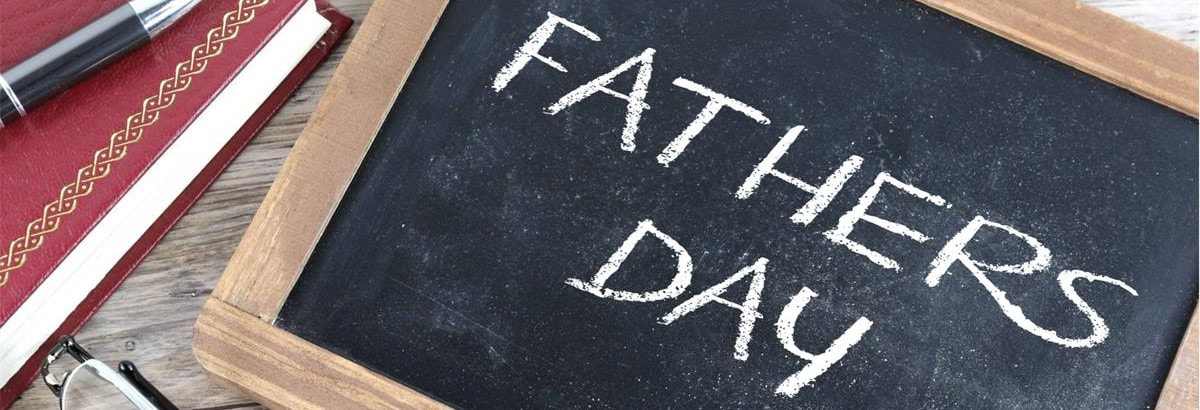|
Joanna Sedley-Burke is a Trustee of Widowed & Young and became the chair in July 2021. She talked to The Widow's Handbook about her wife Paula, and about being an LGBTQ+ widow. You and Paula were part of the campaign for same-sex marriages in the UK Yes. We collaborated with the Stonewall campaign for civil partnerships, and then for same sex marriages. We were lucky enough to be the first civil partnership at The Ritz in London, and we where then invited to be one of the first five same-sex marriages at Westminster. Whilst we were married for 11 years, we were together for 20 years. I am lucky to be able to say that her family have been nothing other than supportive; in fact, they call me their fourth daughter. Tell me about Paula's illness Paula had autoimmune conditions, including Crohn's disease and ankylosing spondylitis, and she had a number of flare ups over the years we were together. She wasn't well, but she wasn't seriously ill by any means. Back in February 2017 she was having chest problems, and we went to A&E, where she was X rayed and they told us that there was nothing wrong. We went home. Paula clearly still wasn't well. We went back in and they did more blood tests. We were told at this point that she had an infection, but they weren’t about to specify where, and they sent us home with antibiotics. She got worse during the following week, and they finally diagnosed a chest infection, and gave her different antibiotics. But her breathing got worse, and I called 999. We were blue-lighted into our local hospital and went straight into the resus unit. At this point they did more X-rays, which showed a shadow on her lung, indicating pneumonia. We were relieved as there was a fear she had sepsis. They put Paula on oxygen, and it must have helped because she demanded a roast chicken dinner. She never lost her sense of humour, all the time that she was ill. The doctor said that she would probably in for a number of weeks because of her compromised immune system. I went home, and I tried to call her mobile later, but there was no signal. The next morning I called the hospital and they said she'd had a quiet night, and to call back in half an hour. When I did, her speech was slurring a bit, but she was like that when she was hungry. An hour later I received a call asking me to come in and talk to the doctors. She had developed hypoglycaemia which then triggered sepsis. She was already underweight, and the infection set off a downwards spiral. The nurses had paged the doctor, but sadly no one responded to the call out. Paula died five minutes after the hospital called me. What were the issues that you had with the hospital? Three months later my mother-in-law told me that the hospital had called her indicating that the X-ray had shown that there was a problem. I put in a complaint to say that they should not have divulged this to her mother. Not only was she in her late 70s with a heart condition, but more importantly I was Paula's next of kin. In my head this was a breach of confidentiality. The hospital's response was that they could as because Paula had died, it was no longer a data breach. I requested all of her medical notes and much to my horror I found out that the hospital had put a DNR [do not resuscitate] in place. Paula and I had discussed this, and I could not believe that she would ever have asked for it. She hadn't mentioned it to me. The hospital had referred itself for a serious incident investigation. This review took months, and when I saw the report, I couldn't believe it. They spelled my name wrong, said that I was the husband, got Paula's date of death wrong, and said that I had put the DNR place. It was as if it was written about a completely different person. This really wasn't a proper investigation, and had 48 major errors in it, despite it having been read and approved by six different senior managers in the Trust. Going through the report just left me reliving the original trauma, and the way I coped was treating it as if it was a work project. I had to detach myself. Did they finally get a revised report to you? I finally managed to get a revised version of the report after four months. I questioned everything that had happened. Finally, the Trust admitted that the doctor had put the DNR in place without discussing it with anyone. Luckily for me, I had a medical friend look through the information. One thing that was particulally hard was finding out that the X-ray that had been taken in February had shown evidence of a shadow, but that this hadn't been passed on to Paula's GP, so nothing was ever done with the results. However, something that did help was my friend telling me that when the doctor finally saw Paula on the ward as part of the rounds, she was already at a point where she could not have survived. That she was just going to fall asleep and never wake up. What did you do next? I wasn't happy with how things had been handled and after months or formal complaints not being dealt with appropriately, I went to the Parliamentary and Health Service Ombudsman (PHSO), and they were amazing. I felt zero discrimination, and I felt that I was working with someone who was doing it for me and for Paula, and doing it to bring about policy change. We made the hospital's life hell, because I felt that if it could happen to Paula, it could happen to anyone, as nothing had changed in the hospital's processes. Eventually the PHSO found in my favour, and I take some consolation that the hospital was forced to change its processes and systems to avoid these errors happening again. How is being a widow in a same sex marriage different to a heterosexual widow? It sometimes feels like you are having to come out all over again. And again. But without the excitement of that first coming out. Perhaps as a response to years of lived experience and of unconscious bias, there were times during Paula's illness and after her death where I started to doubt myself, or ask myself 'would you have done that if I was straight?' After her death, when I went back to work, the response of one of my colleagues to the news was 'but I didn't know that you were gay', as if that information trumped the news of her death. And that left me feeling that the most important thing about me was that I was gay, not that my wife and partner of 20 years had died. When I went to register Paula's death, I was asked if I was her daughter or her mother. When I started the admin after her death, on the very first call when I said that I was a widow, the immediate response was 'when did your husband die?' I know that same sex marriage was relatively recent then, but it put another layer on something that was already hard. Some businesses had it right. John Lewis for one, they train their staff in dealing with people who are grieving. But others were harder. When I cancelled her phone contract, I wanted to be assured that her number wouldn't be handed on to anyone else, and that took almost as long as probate. How did you find WAY and what were your first impressions? I found it by accident, through a friend's sister, but I didn't get involved initially, because I thought it was a dating group for straight people! There certainly weren’t any resources for LGBTQ+ widows. I suspect I also didn't want to accept that I was a widow. But I went back and joined a few months later and found my fears completely unfounded. The support and friendship have been a life saver for me. Just having people who ‘get it’ is invaluable. WAY has shown me that I am valued. I’ve never been one to stand in the shadows and when I looked at the trustees and saw older white men, I contacted the then Chief Executive Rebecca Cooper and talked to her about diversity. She invited me to join the board. Five years' on, WAY has a wonderful LGBTQ+ widows' group that is a safe space, and we are working to improve our diversity.
0 Comments
When you are widowed, people don't always know what to say or what to do. They might even avoid you because they are anxious about saying the wrong thing, or are afraid to be around grief and death. What people don't realise is that often all we want – all we need – is to hear our loved one's name. We want to talk about them, and we want to hear people's stories about them.
Around the world there are over 258 million widows*, and according to the Loomba Foundation , almost one in ten live in extreme poverty. In parts of the eastern Democratic Republic of Congo, around 50% of women are believed to be widows.
In parts of the world, widows:
According to the census, there were just over 2 million widows in England in 2020. In the UK, an estimated 1.5 million widows lost out on pension income after bereavement, with almost 60% seeing a major drop in income. It was only in February 2023 that unmarried cohabiting parents could claim bereavement benefits. Cohabiting partners without children are still not eligible for benefits. The origins of International Women's Day On 23 June 1954, Raj Loomba's mother, Pushpa Wati, became a widow at the age of 37. That very day, she was ordered to remove her bangles, jewellery and bindi, which gave her the status of a married woman, and wear white for the rest of her life. When Raj Loomba, who was ten at the time of his father's death, got married to Veena Chaudhry, the priest told him that his mother had to sit away from the alter in case she brought bad luck to the couple. Five years after his mother died, Loomba and his wife set up the Shrimati Pushpa Wati Loomba Trust (now the Lomba Foundation) to support widows and their children. The Foundation created International Widow's Day in 2005, and in 2010 the United Nations declared 23 June to be a United Nations day of action to highlight and combat discrimination and injustice suffered by widows worldwide. What we can do to safeguard and advance widows’ rights From The UN Women explainer on what you should know about widowhood:
*While The Widows Handbook usually uses 'widow' as a non-gendered term, this piece talks about female widows The day Tim died I had to do the hardest thing ever – break the news to his parents. I then had to tell my family. Friends passed the news onto friends. It was unbearable. Every conversation relived the awful shock of that morning.
The next day, the news had travelled fast. People around the village, people on social media, sent me messages of love and concern. What I hadn't realised, though, was how often I was going to have to tell people that he had died. His bookshop customers. All the people involved in the sadmin – banks (over and over again), DVLC, business contacts. People we hadn't seen for years. Even years later it still catches me. A mailing list he's still on. The tax office because his company is dormant but not yet closed. Breaking the news doesn't seem to end. As Father's Day approaches, sending love to all who are:
 After the death of her husband, Geoffrey, fashion journalist Felicity Green said: " I have got plenty of people to do something with, but nobody to do nothing with". After Tim died, I missed the big things. Going away together. Planning Christmas together. But it was the little things that I missed the most. I worked upstairs in my office and he worked downstairs in the shop, and I'd potter down with a cup of tea in his favourite mug, or to tell him something about my day, and he'd potter up to show me a new book that had just come in. I'd notice when he'd cleaned the hair out of the vacuum cleaner (a job I hated), or when he emptied the bin in my office. He'd do things around the house when I went away for work, and I'd wander round when I got back and spot them. If we were both awake in the night, we'd talk about anything and nothing. If I got up early to work I'd come back to bed with a cup of tea and he'd warm my feet. Like Felicity Green, I missed doing nothing with him. Losing a partner is devastating, and it's at times that this we need people around us to support us.
One of the things that surprised me when Tim died was the people who reached out to me. Some of them were the people I expected. My family. My closest and dearest friends. But some of them were people I didn't expect. People I didn't think I was close to, or I thought I'd lost touch with, but who were kind, loving and actually, all-round amazing. And our friendships grew. Sadly, some widows say that what has surprised them are the people who don't reach out, or who cross the road rather than talk. Who send a message saying 'is there anything I can do', and then just vanish. This may be because they don't know how to deal with grief and are afraid to say the wrong thing and upset us more. It may be because they can't bear to see us in pain. It may be because they have experienced bereavement, our grief has reawakened their feelings of loss, and it's all too much to deal with. It may be they think we are after their partner. Or it may simply be that being around death makes them feel too vulnerable. It's so hard to lose friends, especially at a time when life is tough. Sometimes we can reconnect with these people, and sometimes we just have to let friendships go. Grief support groups (for me it was Widowed and Young) are so valuable at times like this, because they are full of people who just get it. Grief isn't a competition. It's not worse or better because one person was only married for days before their husband died in a road traffic accident at 23, or another person died peacefully of natural causes at 94 after 68 years of being together. Its not easier or harder when a partner died suddenly and unexpectedly or after years of illness. Grief is grief. Your experience of grief doesn't lessen mine, it's just different. I can care for you and you can care for me.
For complicated reasons I have had a bad week, and the thing that happened has brought a lot of the grief back. I have been living with a feeling of impending doom for a few months – that something awful is going to happen and it will be my fault – and a sense that I don't deserve happiness. I'm not allowed to be happy.
I just want to say that after what we have been through, we do deserve happiness. It probably won't be the happiness that we thought we would have before we lost our person. It may not be what we previously saw as happiness. It may take days, weeks, months, years to feel it. But we – and I – deserve it. And today – if you need it – I give you permission to feel happy. 'Self-care' is a bit of a buzzword. It's become about 'me time', bath bombs, scented candles, manicures, facemasks, herbal teas, touching trees and drinking a lot of water out of an enormous plastic water bottle. While none of these are wrong in themselves, they offer a fleeting moment of care, and may not appeal to everyone. They can also become a pressure, leaving grieving people feeling worse when the solutions don't make everything better.
In grief, self-care is actually about caring for our mental and physical health and keeping ourselves safe and well. Caring for ourselves The most important part of self-care, which sounds easy but is actually quite hard, is being kind to ourselves. It's about being as good to ourselves as we would be to others in the same situation, giving ourselves permission to feel sad, to say no, to take breaks and to get things wrong sometimes. Remember, we are doing our best in a situation not of our choosing. Self-care can include:
Meditation and mindfulness may help. However, as someone with ADHD, these allowed too much space for intrusive thoughts; it was too much for me but some people find it very useful. |
AuthorI was widowed at 50 when Tim, who I expected would be my happy-ever-after following a marriage break-up, died suddenly from heart failure linked to his type 2 diabetes. Though we'd known each other since our early 20s, we'd been married less than ten years. Archives
July 2024
Categories
All
|









 RSS Feed
RSS Feed